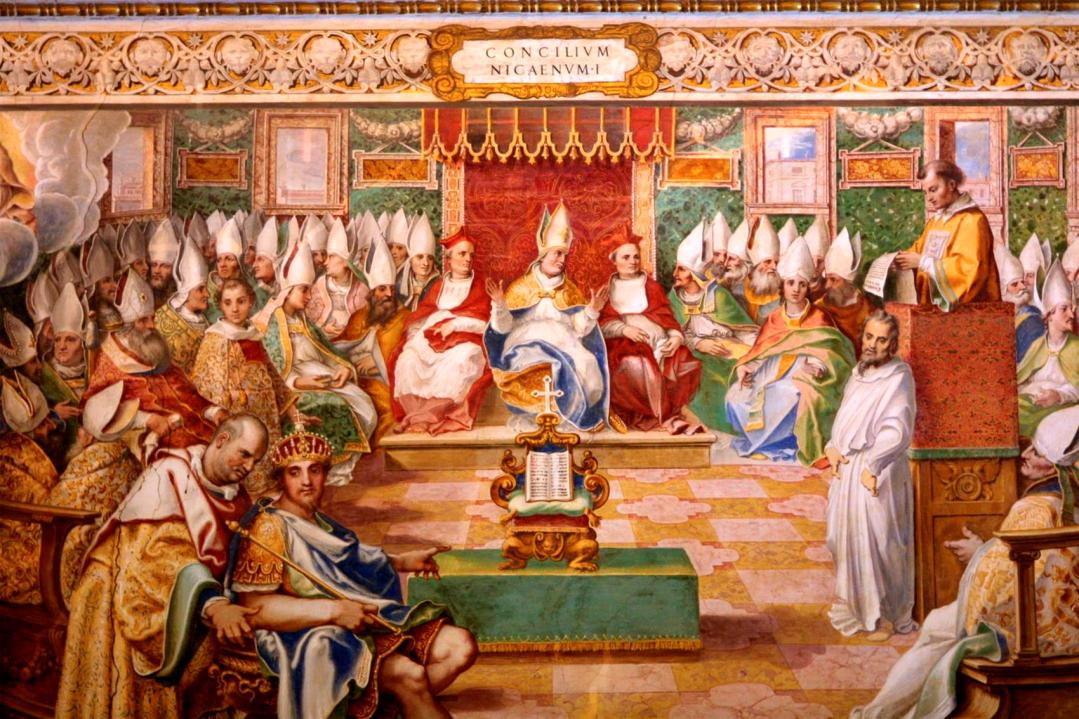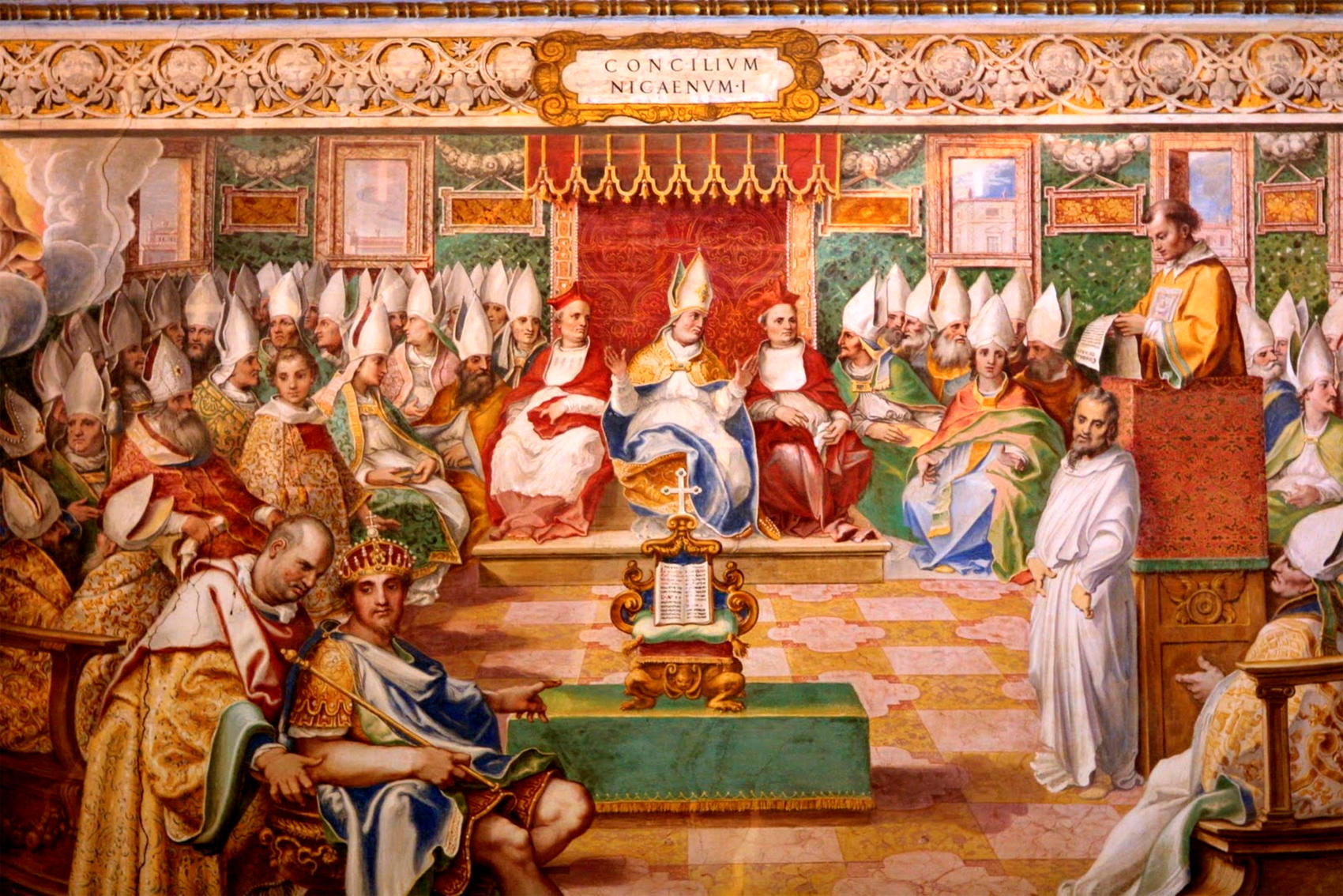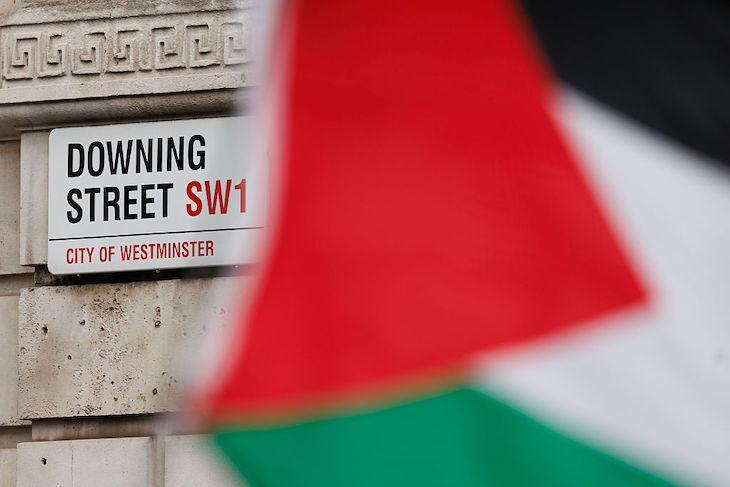So, you thought the date of Easter, which rambles irritatingly round the spring calendar, was settled by the Synod of Whitby, no? That gathering in 664 AD, which established that Northumbria would celebrate Easter in the Roman calendar, used to be one of the events that Every Schoolboy Knows, though probably not now.
There were two rival ways of computing Easter, the Celtic and the Roman, and the problem was that King Oswald belonged to the Irish/Iona tradition, and his wife, Eanflaed, kept the Roman calendar. One bit of the court would be in Lent and fasting, vegan-style, and abstaining from sex and fighting, while the other was celebrating Easter, gorging on Paschal lamb and presumably up for conjugal relations and brawling. So, the Synod of Whitby established that Anglo-Saxon England would be following Roman usage.
The gist was that Easter was celebrated on the Sunday following the first full moon after the spring equinox. Before the Council of Nicaea, in 325 AD, most churches simply followed the Jewish Passover.
It’s all terrifically annoying as a computation for those who like their calendars to be fixed and for rigorous secularists who fancy a straight spring bank holiday instead. Indeed, parliament was so exercised about the matter that in 1928 it passed the Easter Act, aiming to fix Easter on the first Sunday after the second Saturday in April – a striking act of hubris for one bit of Christendom to decide on the Resurrection. The act was never brought into force, though it remains on the statute book.
The upshot is that there is one bit of the secular calendar that’s determined by 4th century ways of doing things. Except it’s not quite that easy. How you decide on the spring equinox depends on what calendar you follow and where in the world you are situated. Ever since the Roman Catholic Church adopted the Gregorian calendar in the 16th century while the Orthodox Churches stuck with the Julian one, different parts of Christendom keep Lent and Easter at different times.
Ever since the Roman Catholic Church adopted the Gregorian calendar while the Orthodox Churches stuck with the Julian one, different parts of Christendom keep Lent and Easter at different times
This year, by a happy coincidence, it’s both the 1,700th anniversary of the Council of Nicaea and a year when east and west are celebrating Easter at the same time. This struck Pope Francis and in January, when he was marking the week given over to Church Unity, he observed that he hoped for ‘a decisive step forward toward unity around a common date for Easter’.
Which sounds lovely, except he has also made clear that it would be the Orthodox who would be deciding the date according to their Paschalion, or ready-reckoner. If they come up with a common date, he’ll sign the Roman Catholic church up to it. The trouble is that the Julian calendar isn’t accurate; Francis, so forward looking in some ways, would be reversing half a millennium of scientific progress, though the Gregorian calendar itself isn’t infallible either. That’s not a great look.
A better plan has been proposed by ecumenist Paul Nizinskyj. Writing in next month’s Catholic Herald, he recalls that the Pan-Orthodox Congress of Constantinople of 1923 agreed on an astronomically determined Easter, recording the spring equinox and Paschal full moon as viewed from Jerusalem. That was adopted by the World Council of Churches at Aleppo in 1997 in the hope that it would be agreed by 2001.
This rational solution should be acceptable to all bits of Christendom, though it would be something of a miracle if there were consensus. Meanwhile, one lot of bank holidays is literally a moveable feast. Don’t knock it – think of it as evidence that at least the calendar is culturally Christian.







Comments